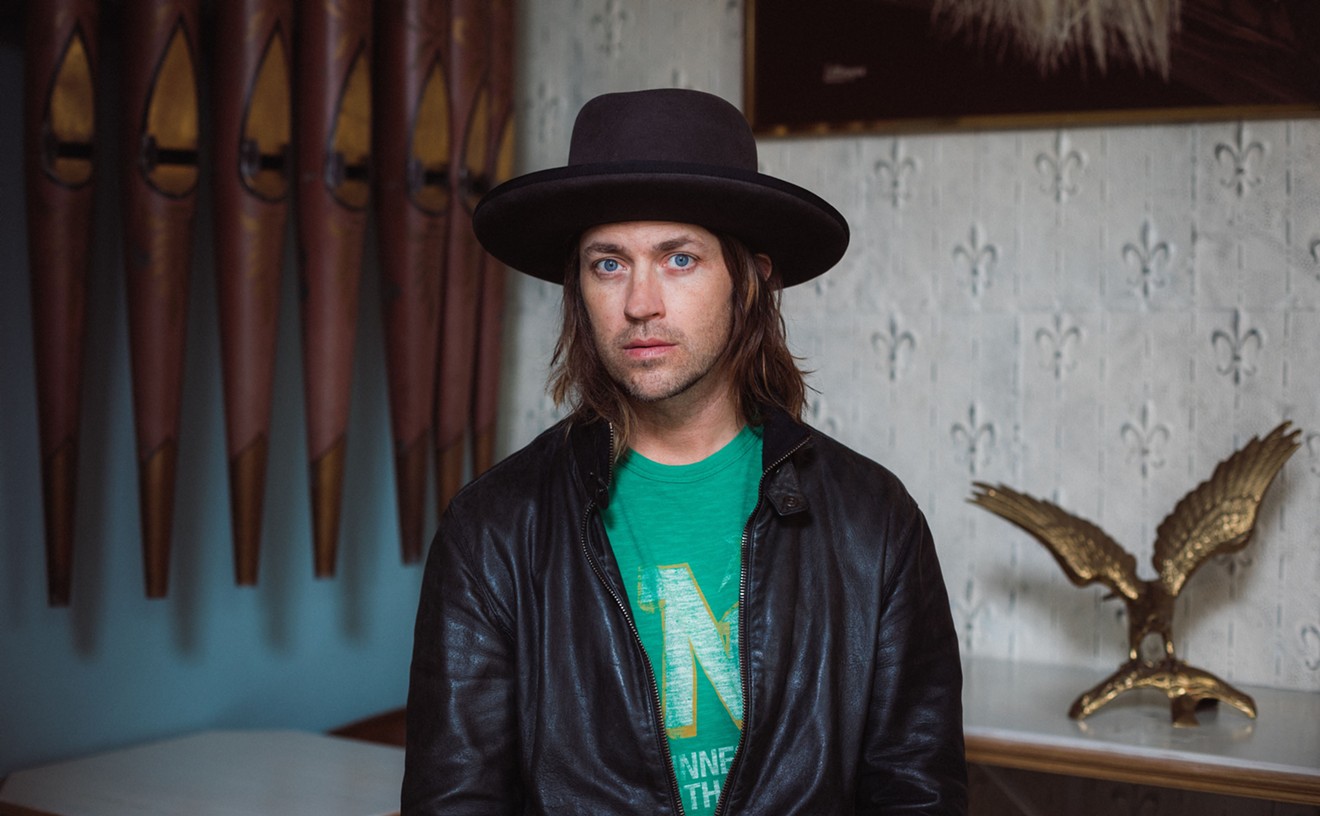Initially, Warren Fischer and Casey Spooner began collaborating on performance art pieces as students at the Art Institute of Chicago. Then, in 1998, after 10 years apart, their artistic endeavors brought them back together. Eager to rekindle the creative flame of their co-ed years, the pair reunited to pitch a style-focused television pilot for MTV.
The pilot for Cool Hunting, as the show was called, was an espionage-style documentary of people who get paid to steal innovative ideas within the fashion industry. It was never picked up, no. But out of it, the electronica duo Fischerspooner, whose name is simply an amalgamation of its two contributors' surnames, was born.
"We shot all this stuff, but we needed a piece of music for it," Fischer says. "I was like, 'Oh great, I'll make some sort of dance track or something.' I had never made dance music before."
Fischer, who, at the time, had some experience as a classical music composer and had also performed in a few math-rock bands, was able to come up with a dance-y, digital soundtrack for the show. And though the music was never heard as initially intended behind the scenes of the pilot, the experience proved much more valuable to Fischer and Spooner in the long run. They had found yet a new creative interest—not only in the music they had begun creating, but in all that popular music and culture entails.
"We wanted to do our arts-background take on what a pop show could and should be, in our opinion," Fischer says.
Fast forward another 11 years, and today, Fischerspooner is regaled for its live show, something that's grown greatly from the first time the duo's music was performed live in a New York City Starbucks location. Now the group incorporates photography, dance, lighting, special effects, film reels, smoke machines, theatrical props and Zoolander-esque costumes into each show it performs. And not just because the duo can, Fischer explains: "It is for the audience, in that we like how popular entertainment—you know, I'm thinking a Britney or Madonna concert, or Janet Jackson or something—how those work, and why people get excited for them...and [we] take some of those elements, and put them through our more independent lens, so to speak."
But still, there's even more to it than that. Though intended as a commentary to a degree, Fischerspooner's artistic take on popular culture is rooted in the group's musical output more than anything. Mostly because, Fischer adds, "most performance art, specifically, is very boring, and taxing, and confrontational and demands a lot from the audience."
And now on the road to promote its third release, Entertainment, that concept too has come full-circle.
"Entertainment—popular entertainment—is about so much more than the one thing [performers] make," Fischer says. "Like, Beyoncé doesn't just mean a singer to people. She's more than that, and it relates to people's lives."
And therein lies the conundrum of the group's dynamic. Fischerspooner takes itself seriously—but not overly so. They appreciate the art forms their music and live shows embody, but admit that it's about more than just art. They are musicians by trade and full-blown entertainers by nature. There isn't necessarily one idea that the group is founded upon; rather, it's founded upon all ideas.
"People can access different elements of it," Fischer says. "Some people love the show, but would never listen to the music. Some people love the music, but think the show is too poppy or too ridiculous or too weird."
Since its creation, that's been Fischerspooner's problem, Fischer says. But also, it's the band's biggest strength.
"It's like trying to find the right balance of things you haven't really felt before," he says. "It's like, 'He's doing a great job, but does he take it seriously?' Then you start to realize, 'Oh, who cares? I don't give a shit anymore.'"










